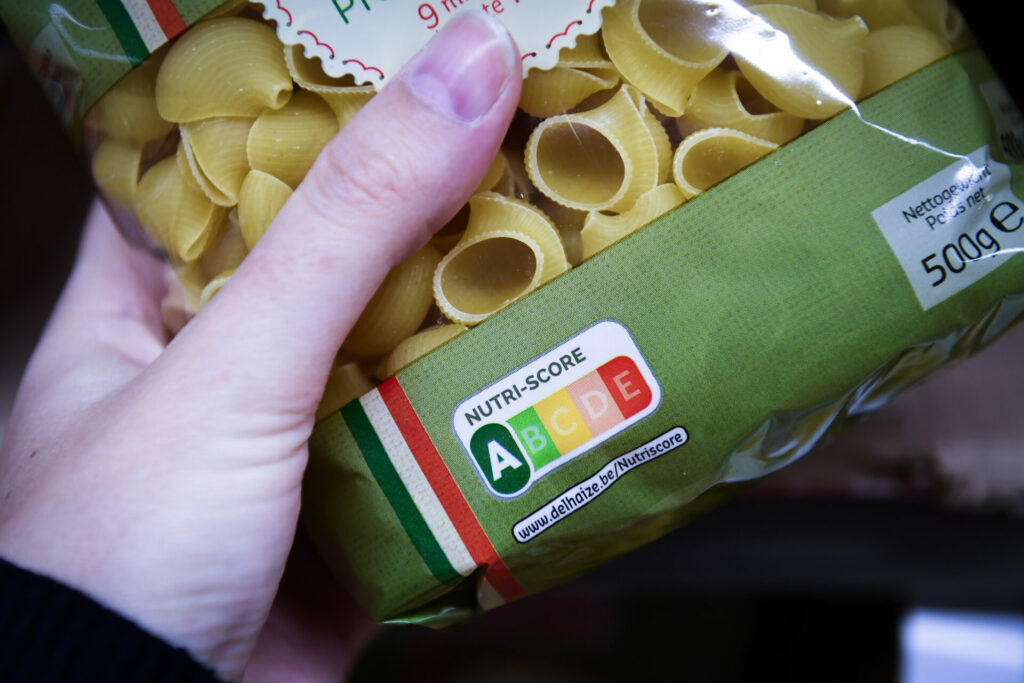The European Union is looking to make nutrition labelling compulsory, yet Belgian research has found that the system does not fulfil its primary objective: helping steer consumers towards a healthier and more balanced diet.
The Nutri-Score nutrition labelling system, first introduced in Belgium in 2018, consists of a colour and a letter, determined by the algorithm, that should visually indicates which foods within a particular product group are healthier than others by linking positive and negative properties, aiming to influence consumer choice towards a healthier and more balanced diet.
However, almost one in three (30%) of consumers still choose unhealthy food in supermarkets, a study by the University of Antwerp (UAntwerp) published on Wednesday showed.
Three groups of shoppers
Researchers looked into the motivations that influence consumer purchases, asking more than one thousand people to choose between two types of products – such as two types of yoghurt, orange juice, crisps or granola – differing in terms of Nutri-Score, but also in price and brand.
Half of the consumers deliberately chose the healthiest product. "For them, a product that went from a Nutri-Score C to a B suddenly seemed much more attractive. When the same product had a Nutri-Score D, they lost interest completely," stated Elke Godden, an Economist at the University of Antwerp who carried out the research.
The second group consisted of 20% of supermarket shoppers, who mostly opted for an "A-brand product" (with high brand awareness and a good reputation), even when the Nutri-Score was lower. "The remaining 30%, surprisingly, choose the least healthy product option," despite obesity being a growing health problem.
"The decisions of group three seem strange, but they may have been based on their intuition that healthy things cannot be tasty. If a significant proportion of shoppers believe that healthy products taste bad, putting a health rating on the packaging is likely to lead to unhealthy choices," she noted.
Related News
- 'Ultra processed': Meat alternatives still do more harm than good
- 3,540 calories: Europeans far exceed daily recommendation
This group also takes price into consideration much more so than the other groups. "With a fairer price, however, we can convince them."
In light of debates at the EU level to make nutrition labelling compulsory, she noted that the exact reasons why people choose a particular product should be taken into account, adding that reducing the prices of healthy food is more beneficial.
Meanwhile, she urged consumers to choose what they want to eat first and then compare the Nutri-Scores." "If you want to know what is healthier in a certain product category, let the Nutri-Score guide you."

